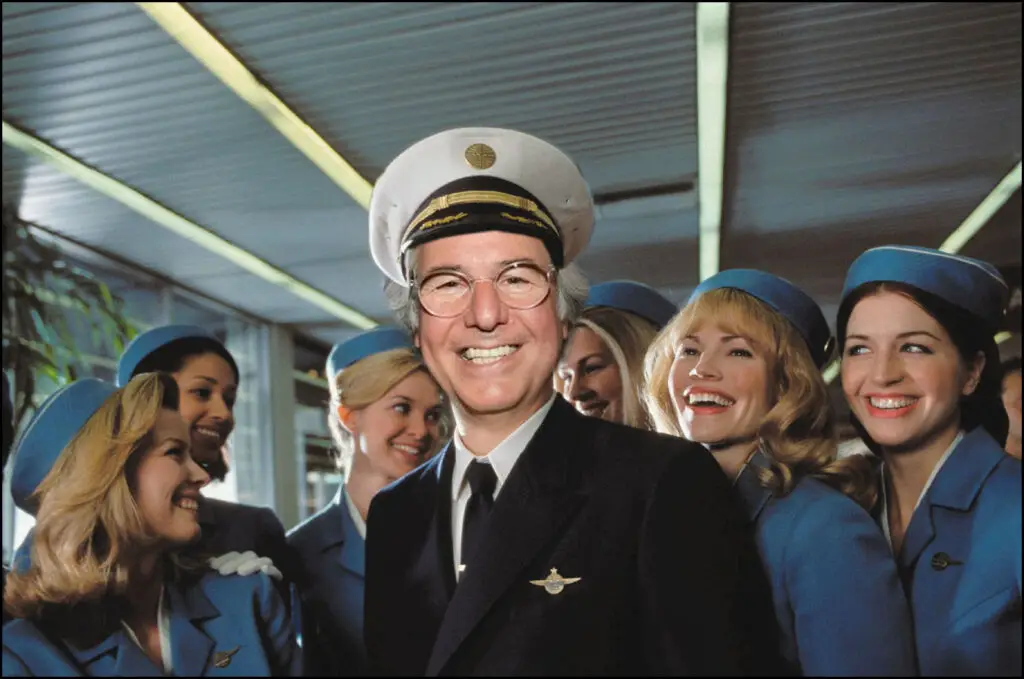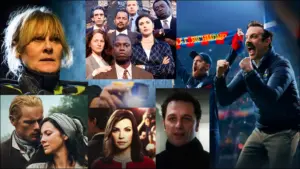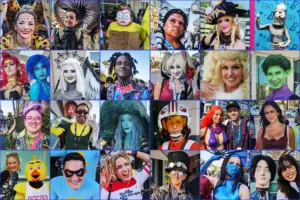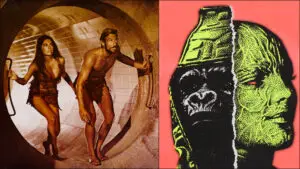Once a conman, always a conman. It would be nice to believe otherwise, but sometimes a bullshitter’s bullshit is bottomless. No matter what a slick Hollywood movie claims.

I’ve always enjoyed Steven Spielberg’s 2002 film “Catch Me If You Can,” about a young conman who forges checks, tricks police, and impersonates an airline pilot, a doctor, and a lawyer. Set in the stylish 1960s, with a brisk pace accentuated by a swinging jazz score, the movie showcased Leonardo DiCaprio’s charisma as the clever criminal, matched by the gruff, plodding dignity of Tom Hanks as the FBI agent pursuing him.
The screenplay boasts that it’s a true story, based on the 1980 memoir of Frank Abagnale Jr., who alleges he forged more than $2 million in bad checks, flew in the jumpseat of numerous Pan Am flights, passed the bar to get a law degree in Louisiana, was paid good money for weeks as a staff pediatrician in a hospital, and managed to evade capture, and prison, numerous times. The movie’s ending boasts that, after he was caught, the FBI hired him as one of their chief security experts, and he led a reformed life of honesty and virtue ever since.
Since the movie’s release, Frank Abagnale has appeared in lecture halls and college commencement ceremonies, giving a boilerplate speech about his father’s love, his early life of crime, his rehabilitation, and his consultant work. You can easily search for him on YouTube and find one such speech he made for Google Talks in 2017.
Google has since disavowed this speech. That’s because Abagnale not only was full of it as a young man, but has remained full of it for the duration.
Most of Abagnale’s claims remain false, and the few that are true are exaggerated. Abagnale’s original 1980s book was suspicious to begin with, but the 2002 Spielberg movie breathed new life into his false claims. From there, Abagnale has leveraged his notoriety into speaking engagements and security work while layering new falsehoods atop the old ones.
Recently the meta-con has received more scrutiny, and the verdict is: Never assume a conman has reformed.
Among Abagnale’s lies: He never worked for the FBI, wasn’t on their most-wanted list, didn’t pass the bar, didn’t impersonate a college teacher, probably wasn’t on staff in a hospital, likely only rode the Pan Am jump seat a couple of times, only kited a couple thousands dollars worth of checks (not $2 million), didn’t “only con faceless corporations” as he claims, wasn’t in an overseas prison, and has avoided setting the record straight about numerous other fabrications made up by his book’s co-writer, the late Stan Redding.
Indeed, it appears Abagnale has been in an awkward position: Either deny all of his false claims and lose the status of a major conman, as well as undermining the notoriety he earned from “Catch Me If You Can”….. Or keep the con going indefinitely, at a higher level, presenting himself as a reformed and honest fellow while maintaining several of his lies and reaping maximum financial rewards.
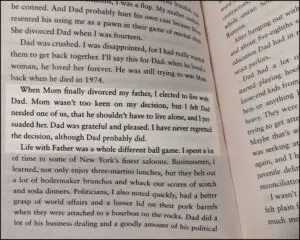
The 2020 book, “The Greatest Hoax on Earth: Catching Truth While We Can,” lays out the entire charade for more than 400 pages. For a shorter summary, check out this March 2023 article in The New York Post. An earlier article in The Louisiana Voice details the lie of Abagnale not harming individuals with his cons — and the fact that Abagnale has neither apologized nor made things right with his victims.
I recall suspecting much of this several years ago, when I read Abagnale’s book. I was intrigued by the events of the movie, with its romanticized spirit of adventure and breaking social boundaries by pushing people’s buttons of trust. In addition to DiCaprio and Hanks, “Catch Me If You Can” sports a charming early performance by Amy Adams, a sharp bit of sexual interplay and mutual manipulation with Jennifer Garner, and a winning role for Christopher Walken — as the main character’s sweet but broken father, whose loss of his wife to the affections of his work colleague closely mirrors the real-life scenario Spielberg dramatizes in 2022’s “The Fabelmans.”
After reading the book and seeing the movie again, I watched several of Abagnale’s speeches from the past two decades. He presents himself well, wearing an expensive-looking suit like a senior banker with whom you’d invest your savings. He speaks with a reassuring air in clear, calming cadences, but fast-paced in way that leaves little time to note inconsistencies. Abagnale sounds for all the world like a trustworthy fellow, and much of what he says is very agreeable: He fondly recalls his father saying “I love you” every night at bedtime, and he describes how important both parents are to children. He extols the security benefits of credit cards over debit cards. He emphasizes the need for corporations to train employees to secure their passwords, and keep program patches up to date.
Everything Abagnale says makes sense or inspires an “awwww” response. But in retrospect, most if it is obvious and simple, and contains information anybody could look up. His trustworthy persona is part of the con, his heartwarming stories calibrated to let your guard down.
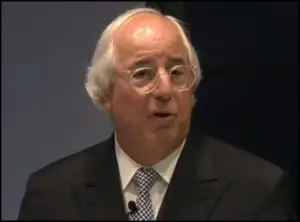
What struck me first, though, is that Abagnale’s personal story during speeches directly contradicts the story he tells in his book. He doesn’t account for the stark difference.
According to Abagnale’s 1980 book (chapter 1, page 8), when his parents divorce, he chooses to live with his father before moving out on his own. By contrast, in his 2017 Google speech, Abagnale says he was surprised to learn of the divorce. When he was abruptly taken to court and put on the spot about choosing a parent, he ran away crying and never saw his father again:
“By the time I’d reached the age of 16 in the 10th grade, my parents after 22 years of marriage, one day decided to get a divorce. Unlike most divorces where the children were usually the first to know, my parents were very good about keeping that a secret. I remember being in the 10th grade when the [Catholic school] father walked in the classroom one afternoon, and asked a brother to excuse me from class. When I came out in the hallway, the father handed me my books and told me that one of the brothers would drive me to the county seat in White Plains, New York, where I would meet my parents and they would explain what was going on. I remember the brother dropped me at the steps of a big stone building, and told me to go on up the steps where my parents would be waiting for me in the lobby. I remember climbing the steps seeing a sign on the building that said Family Court, but I really didn’t understand what that meant. When I arrived in the lobby, my parents were not there, but I was ushered in the back of an immense courtroom where my parents were standing before a judge. I couldn’t hear what the judge was saying, nor my parents’ response. But eventually the judge saw me at the back of the room and motioned me to approach the bench, so I walked up to stand in between my parents. I remember distinctly that the judge never looked at me; he never acknowledged I was standing there. He simply read from his papers and said that my parents were getting a divorce. And because I was 16 years of age, I would need to tell the parent which parent I chose to live with. I started to cry, so I turned and ran out of the courtroom. The judge called for a 10 minute recess, but by the time my parents got outside, I was gone. My mother never saw me again for about 7 years until I was a young adult. Contrary to the movie, my father never saw me or ever spoke to me again.“
Those stories are polar opposites. You’d think Abagnale would at least acknowledge the contradiction.
To do so, though, he’d be opening a can of worms: How much else is false in the original story? Is his updated version also false? (Does he know the difference anymore?)
Here’s a sampling of other wild claims in the original book:
- Abagnale says the Louisiana Bar allows three attempts at the bar exam to get a license to practice law. In other statements, Abagnale has said the Louisiana Bar could be taken as many times as necessary before passing. He also changes the timeline for how many weeks he actually studied. In the book, he says 2 or 3 weeks for the first exam, 6 or more weeks for the second, and another 7 or so weeks before he took it the third time and passed. In other statements Abagnale claims he studied for 8 weeks total. (In the movie the claim is a mere 3 weeks to pass the exam the first time.)
- Abagnale claims he taught summer classes at Brigham Young University in Utah, in sociology. (BYU has looked up relevant records and found nothing that would corroborate this claim.)
- Abagnale claims he gave himself a bachelor’s degree by accessing the computers at the University of Arizona. There is no evidence he had even a rudimentary level of computer-hacking ability.
- Abagnale says he hired eight University of Arizona students to be “model stewardesses” and travel all summer around Europe so he will have an entourage to help him look legitimate as he passes phony checks to various banks. He claims many of these young women overtly hit on him, and he turned each of them down. He also repeatedly says that his only vice is women.
- Abagnale says that after spending at least a year traveling in Europe, and then spending another 6 months or more in a small French town, and being caught and spending more than 6 months in prison in France as well as 6 more in Sweden, goes back to the U.S. and manages to escape out the toilet of a jet as it is taxiing on the JFK runway. Afterward, Abagnale claims he is able to meet a girlfriend in NYC with whom he had stashed some clothes and money, and the girlfriend says, “I was going to spend the money in a few days,” as if she had been holding it for three years and suddenly was about to spend it when he showed up. He also supposedly had $20,000 or so in a safety deposit box in Montreal, but is caught and goes to prison in Atlanta. Then, after all of this, he taps help from one of his other girlfriends in Atlanta, and she helps him escape prison custody by aiding him in impersonating an undercover prison inspector. Then, after helping him escape, she uproots and moves to Montana.
- Abagnale says he once took the controls of a plane, but quickly switched to autopilot. Elsewhere in the book, he claims pilots repeatedly offered to let him fly the plane, but he always declined. At another point, Abagnale says pilots and crews made minimal small talk and otherwise ignored him.
- As the book tells it, Abagnale has sex with dozens of women, but there’s almost no description or discussion of his relationships with them, their seductions, their break-ups, and so on. He only mentions these in passing to explain some of his cons.
- The book describes Abagnale as working in a hospital for nearly a full year. In a BBC interview, Abagnale says he was there “about 10 days.”
- In the book, he escapes from the toilet of an airplane. In the Google speech Q&A, he says he did not escape via the toilet, but via the “kitchen galley.”
Why Does It Matter?
The world won’t stop turning because a conman’s exaggerations have gone largely uncorrected, or that he’s made a career out of compounding those tall tales in front of large audiences, broadcast indefinitely via YouTube. It does appear that, in his own way, Abagnale has attempted to do some good work in preventing scams and informing the public about financial and cyber security.
But there’s a Steven Spielberg movie out there that still claims Frank Abagnale Jr.’s fabricated story as truth. The director of “Schindler’s List” and “Saving Private Ryan” has attached his name to the veracity of something that’s almost as fictional as Peter Pan. The movie now stands as yet another example of why Hollywood “true story” movies can’t be trusted.
Spielberg might excuse the movie by referencing “The Man Who Shot Liberty Valance,” the John Ford movie seen in “The Fabelmans.” The closing line is: “When the legend becomes fact, print the legend.” Some might call that artistic license, but repeatedly excusing deception makes fools of us all.

